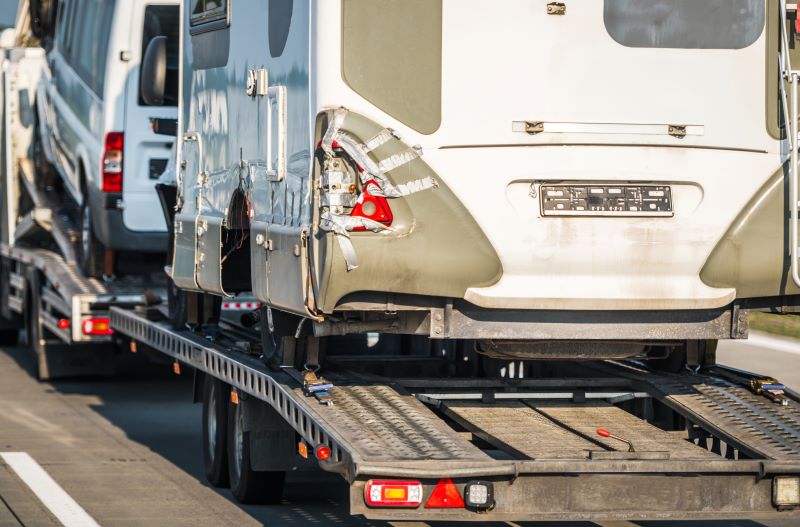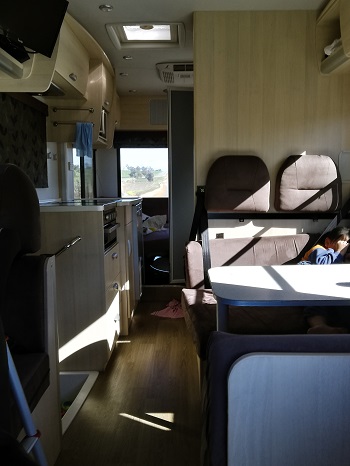Are you a nomad on the open road, exploring new places and living life to the fullest in your motorhome? If so, you know that your motorhome is not just a vehicle, but also your home. It’s where you eat, sleep, and make memories. But have you ever stopped to think about what would happen if something were to go wrong? That’s where insurance for nomads comes in.
It offers protection and peace of mind for any unexpected events or accidents that may occur while on the road.
When it comes to insurance coverage for nomads, there are different types to consider. From liability coverage that protects against bodily injury or property damage caused by your motorhome to comprehensive coverage that covers theft, vandalism, and natural disasters, there are options available to suit your specific needs.
Factors such as the age and value of your motorhome insurance, your driving record, and how often you use your motorhome will all come into play when choosing the right insurance policy.
Finding the best insurance for nomads requires research and careful consideration. You want to make sure you’re getting adequate coverage at a price that fits within your budget.
It’s important to review different insurance providers and compare their policies before making a decision. Additionally, be sure to read through the fine print of each policy so you understand exactly what is covered and what is not.
With the right insurance in place, you can continue on your nomadic journey with confidence knowing that both you and your motorhome are protected.
Key Takeaways
- Different types of insurance coverage for nomads include liability coverage, comprehensive coverage, collision coverage, and comprehensive coverage.
- Factors such as age and value of the motorhome, driving record, and frequency of use affect the choice of insurance policy.
- Comparing insurance rates from different providers is important to get the most competitive price.
- Understanding policy exclusions is crucial to avoid surprises or gaps in coverage.
Types of Insurance Coverage for Nomads
When it comes to protecting your motorhome, there are various types of insurance coverage that nomads can choose from. RV insurance options are designed to provide comprehensive coverage for full-time RVers, ensuring that you have the necessary protection while on the road.
One of the most common types of insurance coverage for nomads is liability insurance, which covers any damages or injuries caused by your motorhome to other people or property. This is essential as accidents can happen anytime and anywhere, so having liability coverage will give you peace of mind knowing that you’re financially protected.
In addition to liability insurance, there are other types of coverage available for nomads. Collision coverage helps pay for repairs or replacement if your motorhome is damaged due to a collision with another vehicle or object. Comprehensive coverage provides protection against non-collision incidents such as theft, vandalism, fire, or natural disasters.
These additional coverages ensure that you’re fully protected in various scenarios and help safeguard your investment in your motorhome. It’s important to carefully consider all the available RV insurance options and choose the ones that best suit your needs and budget as a full-time RVer.

Factors to Consider When Choosing Insurance for Your Motorhome
As you embark on your nomadic journey, it’s crucial to weigh various factors before selecting the ideal coverage for your beloved mobile sanctuary. One of the primary considerations is the cost of insurance. While it may be tempting to choose the cheapest option available, it’s important to remember that cheap doesn’t always mean adequate coverage.
Take into account the value of your motorhome and its contents, as well as any potential liabilities you may face while on the road. Balancing affordability with comprehensive coverage is key.
In addition to cost considerations, you should also carefully evaluate the coverage options provided by different insurance providers. It’s essential to ensure that your policy adequately covers both physical damages and personal liabilities. Look for policies that include protection against theft, accidents, natural disasters, and vandalism.
Additionally, consider whether roadside assistance or rental reimbursement is included in the policy. These additional features can provide you with peace of mind knowing that you’re protected in various scenarios while traveling on the open road.
By taking into account both cost considerations and coverage options, you can make an informed decision when choosing insurance for your motorhome and enjoy a worry-free nomadic lifestyle.
Tips for Finding the Best Insurance for Nomads
Embarking on your nomadic journey, you’ll want to discover the ultimate coverage that ensures peace of mind while exploring the open road.
When it comes to finding the best insurance for nomads, there are a few key tips to keep in mind. First and foremost, it’s important to compare insurance rates from different providers. By getting quotes from multiple companies, you can ensure that you’re getting the most competitive price for your motorhome coverage. Take into account factors such as deductibles, coverage limits, and any additional benefits or discounts offered by each insurer.
In addition to comparing rates, understanding policy exclusions is crucial when choosing insurance for your nomadic lifestyle. Policy exclusions refer to specific situations or items that are not covered by your insurance policy. It’s essential to carefully read and comprehend these exclusions before making a decision.
For example, some policies may exclude coverage for certain types of damage or incidents that commonly occur during travels. By being aware of these exclusions upfront, you can avoid any surprises or gaps in coverage down the line.
Ultimately, taking the time to compare rates and understand policy exclusions will help you find the best insurance for nomads and provide you with peace of mind as you embark on your adventures on wheels.
Conclusion
In conclusion, when it comes to insuring your motorhome as a nomad, it’s essential to understand the types of coverage available and consider several factors before making a decision. From comprehensive policies that protect against damage and theft to liability coverage that safeguards against accidents, there are options to suit every nomad’s needs.
However, don’t forget about additional coverage such as roadside assistance or personal belongings protection, which can provide added peace of mind on your journeys.
When choosing insurance for your motorhome, it’s crucial to evaluate factors such as cost, deductible amounts, and customer reviews. Research different providers and compare quotes to ensure you’re getting the best deal without compromising on quality.
Consider your specific travel habits and destinations when selecting coverage limits and exclusions. By taking the time to conduct thorough research and make an informed decision, you can rest assured knowing that you’ve taken the necessary steps to protect your beloved motorhome while living life on the road.
In summary, finding the best insurance for nomads requires careful consideration of various factors. Remember that being well-informed is key in making an objective choice. So take advantage of alliteration to add a touch of sophistication while conveying precise information about the types of coverage available and important factors to consider when choosing insurance for your motorhome.
With proper research and thoughtful evaluation, you can find the perfect insurance policy that offers both protection for your motorhome and peace of mind during your nomadic adventures.



